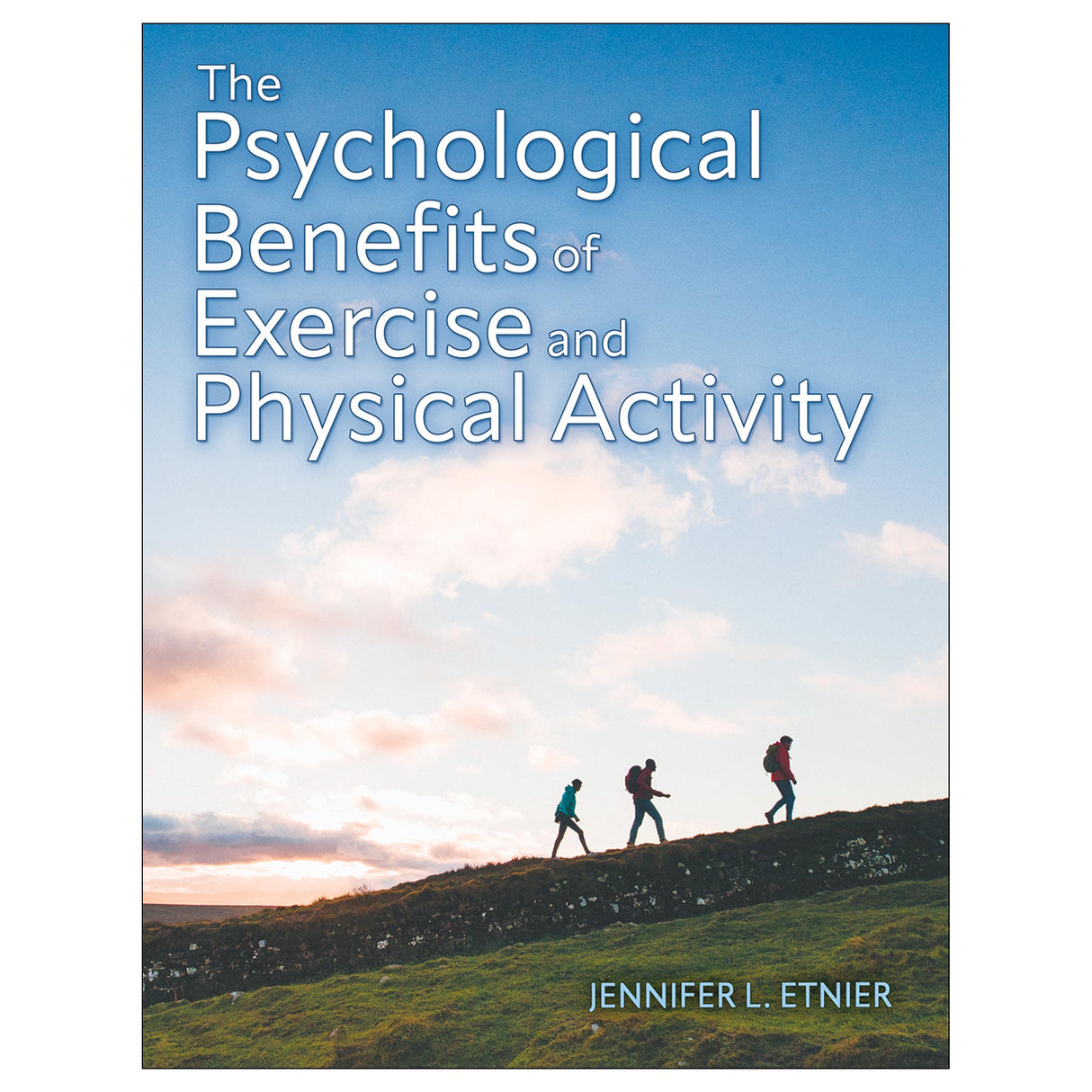The Psychological Benefits of Exercise and Physical Activity epub
Author: Jennifer L. Etnier
$125.95 CAD
Access Duration: 10 Years
Whereas most exercise psychology texts center around psychological theory or interventions, The Psychological Benefits of Exercise and Physical Activity focuses on psychological outcomes, such as the effects on depression and anxiety, as well as the impact on cognitive performance, memory, pain, and sleep. Written by Jennifer L. Etnier, PhD, who previously served as president of the North American Society for the Psychology of Sport and Physical Activity (NASPSPA), the full-color text includes engaging illustrations to help students visualize complex information, and the content is organized to be delivered in a semester-long course.
The introductory chapters (chapters 1-3) set the stage with the history of exercise psychology, theories, and mechanisms proposed to explain research terminology and psychological benefits of exercise. In the remainder of the text (chapters 4-14), each chapter is dedicated to a particular outcome or psychological aspect. Each of these chapters begins with a vignette that provides a real-world example of why questions of exercise and the outcome are important. These chapters uncover the causes of particular psychological conditions and explore how exercise might affect those causes. Next, key research on the potential benefits of exercise for that specific psychological concern is examined. Each chapter closes with a chapter summary and discussion questions.
Throughout the text, sidebars introduce thought-provoking ideas, provide opportunities for self-reflection, or describe interesting research studies that will help engage students. The text also includes learning objectives and key terms to further enhance student learning.
The Psychological Benefits of Exercise and Physical Activity offers students a comprehensive overview of how the mind benefits from physical activity behaviors. It is an essential text for any person interested in motivating others and promoting physical activity for beneficial psychological outcomes.
Audience
Upper-level undergraduate text for courses in exercise psychology that are focused on the psychological outcomes of physical activity.Chapter 2. Answering Research Questions
Chapter 3. Methods and Measurement for Exercise Psychology
Chapter 4. Exercise and Stress
Chapter 5. Exercise and Anxiety
Chapter 6. Exercise and Depression
Chapter 7. Exercise and Affect, Mood, and Emotions
Chapter 8. Exercise and Pain
Chapter 9. Exercise and Cognitive Performance
Chapter 10. Exercise and Brain Health
Chapter 11. Exercise and Self-Esteem
Chapter 12. Exercise and Body Image
Chapter 13. Exercise and Sleep
Chapter 14. Exercise and Quality of Life
© Doody’s Review Service, 2024, Charles Peterson, MD, Abrazo Health (Five Star Review)
Theories and mechanisms of the experience of pain
Understanding post-traumatic stress disorder (PTSD)
All ancillaries are free to adopting instructors through HKPropel.
Instructor guide. Includes a syllabus and chapter objectives, plus lecture aids composed of ideas for lecture topics, sample lecture outlines, and guidance on how to effectively integrate other ancillary components into the teaching plan. The guide also includes ideas for assignments, activities, and class projects; ideas for paper or essay topics; and answers to chapter discussion questions.
Test package. Contains 216 questions in multiple-choice, true-false, and open-ended formats. The files may be downloaded for integration with a learning management system or printed for use as paper-based tests.
Chapter quizzes. Contains ready-made quizzes (10-11 questions each) to assess student comprehension of the most important concepts in each chapter.
Presentation package. Features more than 550 PowerPoint slides of text, artwork, and tables from the book that can be used for class discussion and presentation. The slides in the presentation package can be used directly within PowerPoint or printed to make handouts for students. Instructors can easily add, modify, and rearrange the order of the slides.





